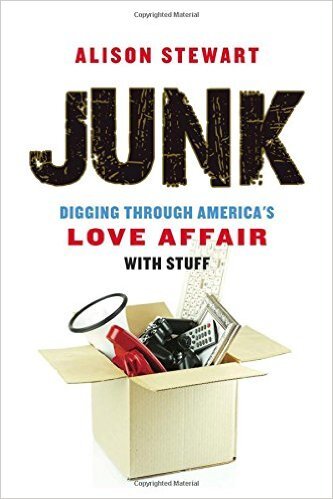Why Do We Hold On to Treasures, Clutter, and Stuff?
It’s the month of books, lots of new books! Most of my latest acquisitions are about clutter. I don’t know about you, but I love books, as does the family I come from. I grew up in a house of books. There were books in every room. Family excursions would often include hours spent “browsing” at bookstores like Rizzoli in New York City. Every time my mom returned from a trip, she’d bring back more books filled with places she traveled or art she’d seen. Sundays were often spent sitting around reading The New York Times, listening to music and reading books.
I’ll admit that when I was younger, I wasn’t as avid a reader. I preferred drawing, painting and dancing. But over the years, I have turned into my mother. What can I say? I have a lot of reading to catch up on.
While the books in our home are neatly stacked and stored on shelves, we have a lot of them. To visitors they might seem like clutter or too much stuff. To us, they are treasures. There are periods when I’ll scour the rooms with a bag in hand, hunting for books that can be released and donated. As I look, I rediscover some great “old friends,” which I can’t part with. However, there are some that I’m ready to let go of and put into the “donate” bag. Each book released represents a small success.
The newly published book, Junk – Digging Through America’s Love Affair With Stuff by journalist and author Alison Stewart, is one of the books that recently joined my collection. About a year and a half ago, I had the pleasure of meeting and talking with Alison. The inspiration for her book came from her experience emptying her parents’ home after they passed away. She became fascinated with why we hold on to things. This led her to a three-year journey investigating all about our culture’s obsession with stuff: collecting it, releasing it, and upcycling it.
Alison cites resources like the Institute for Challenging Disorganization and interviewed many people including junk removers, some of my colleagues and me. She used part of my interview in her book and quoted me saying,
“I don’t think it is so odd that we define ourselves by certain objects. If you think about your space, you have things around, colors you like. What you see is the variation in the volume. And whether the stuff is enhancing your daily experience or it is causing stress. That’s the dividing line. Is it preventing you from living the life you want, doing what you want, causing problems with your family? That’s the slippery slope.”
The need to hold on and collect is a common phenomenon. As Alison asks, “Why do smart, successful people hold on to old Christmas bows, chipped knickknacks, VHS tapes, and books they would likely never reread?”
“Why do smart, successful people hold on to old Christmas bows, chipped knickknacks, VHS tapes, and books they would likely never reread?”
Junk has many great stories, facts and connections with our shared experiences. It’s well worth adding this book to your collection or borrowing it from a friend.
Is your home filled with things that are too good to let go of, yet they no longer are serving a purpose? Have they become clutter? Do they represent postponed decisions? How do you decide if something is a treasure or clutter? I’d love to hear your thoughts. Come join the conversation.



